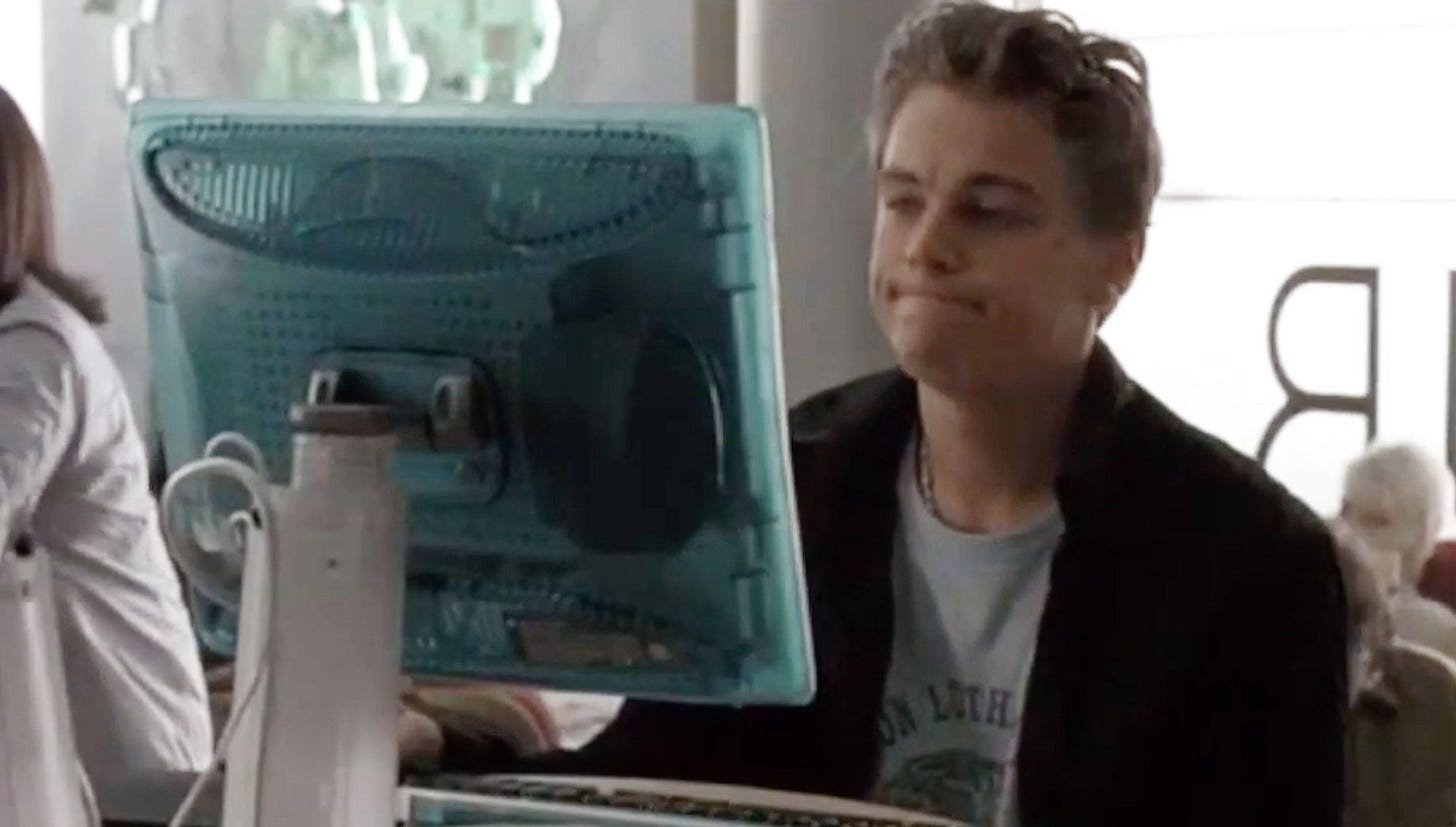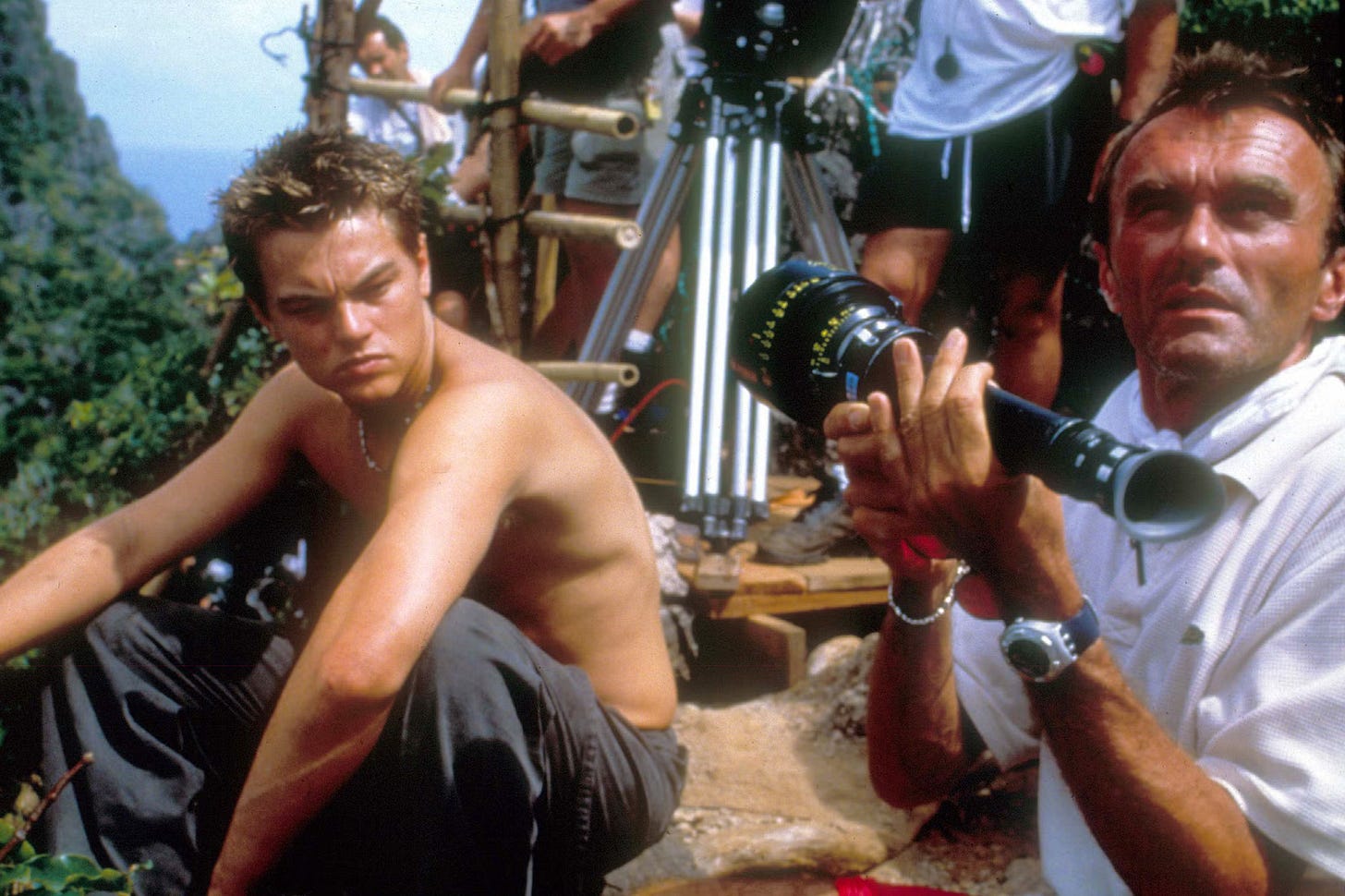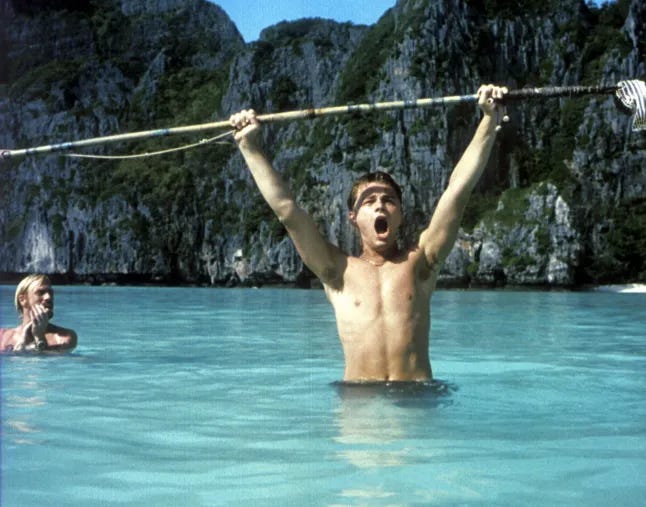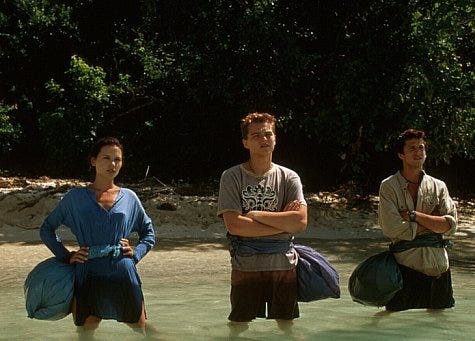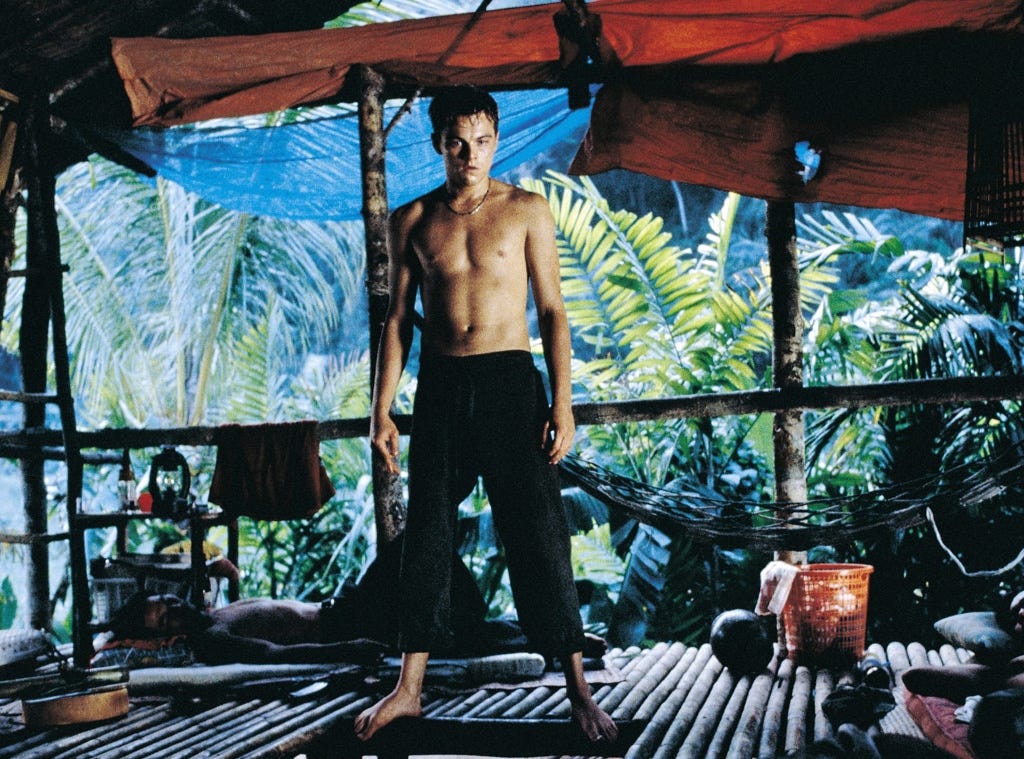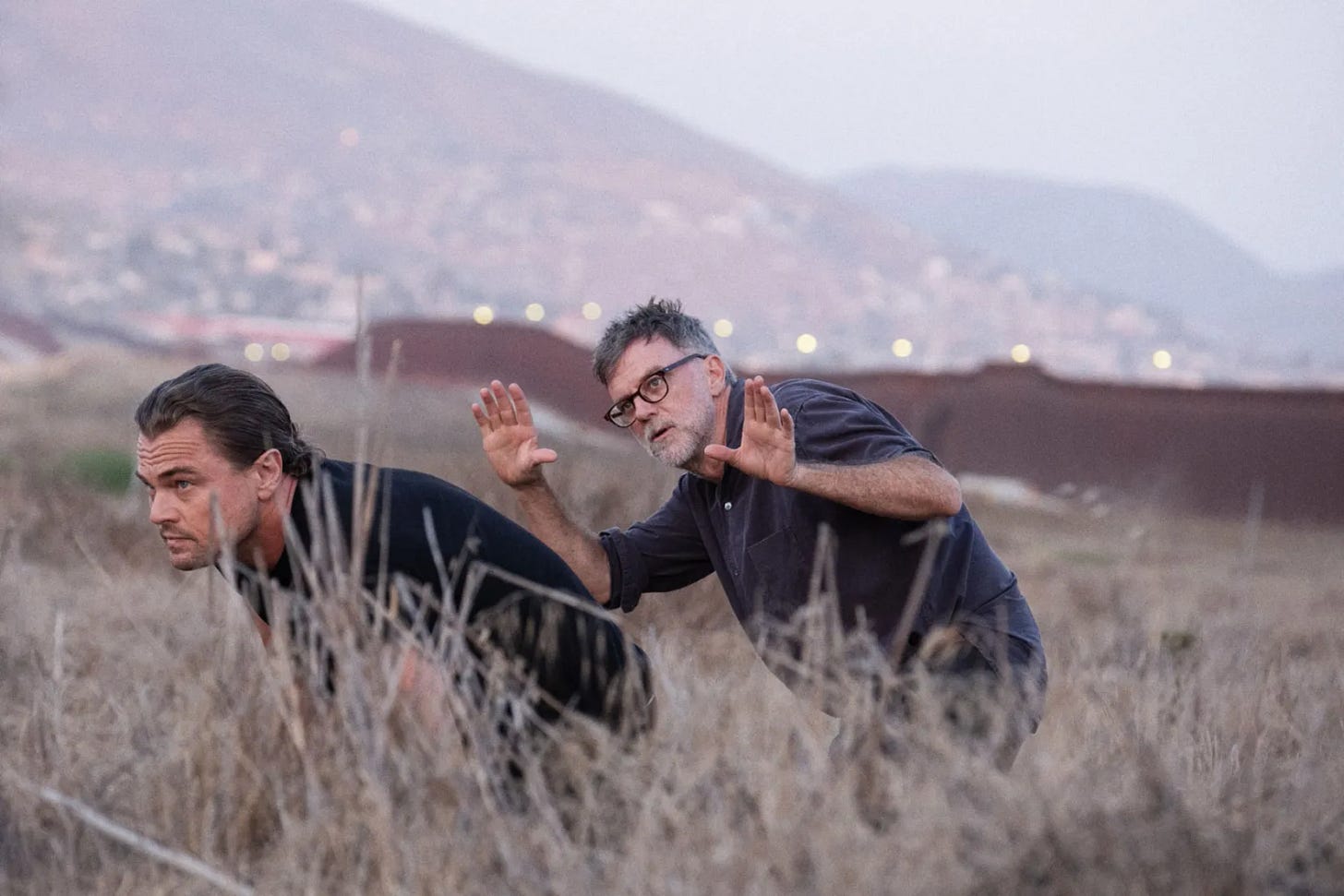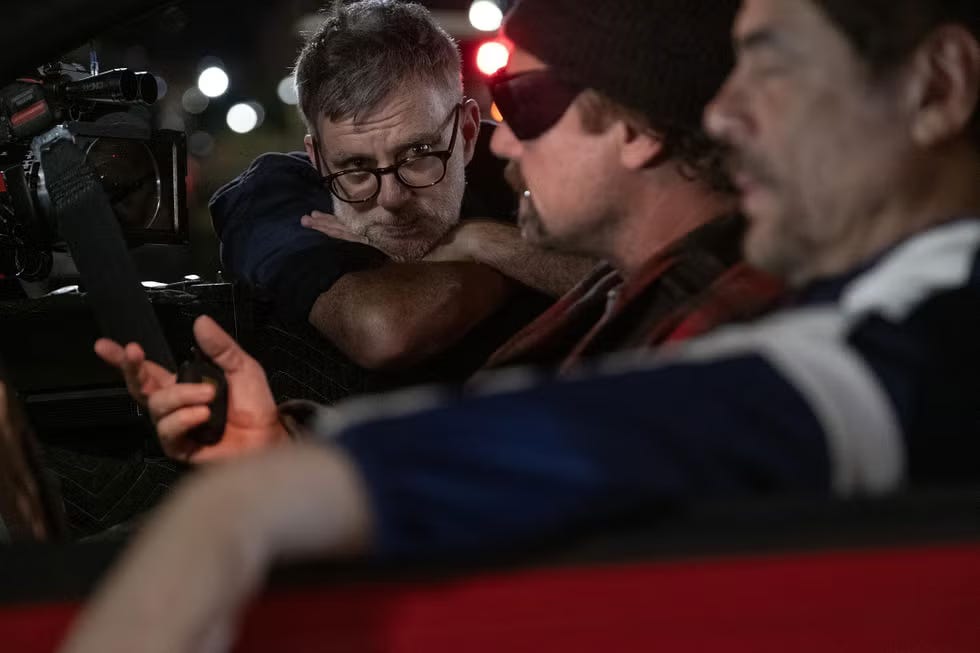Looking for something new?
Elissa Suh on The Beach (2000)
Elissa Suh is a New York–based writer and critic covering film and food. Her work has appeared in MUBI Notebook, Vogue, Cultured, Eater, and elsewhere. Most importantly, she also publishes the newsletter moviepudding.
So you’re not alone in avoiding this movie, because I have too. I didn’t even know Danny Boyle directed The Beach, and I didn’t know it was an adaptation either. Have you read the book?
I haven’t read the book, and I didn’t realize that Alex Garland wrote it. This is their first collaboration. I just really don’t like Alex Garland, especially now that he’s making his own films. And so finding out that he wrote the source material, it kinda was like, okay, it makes sense why this is weak. Apparently, people really liked the book, and it seemed to have been lauded when it came out. Have you read the book?
No. I read that people were obviously upset that the adaptation wasn’t faithful to the source material. I remember the criticism being more that it was weird and fell flat. It’s that same trope of an American finding himself in another country.
The criticism that I’ve heard, from book to movie, is that they added these romance things, and they changed the ending. And I’m, like, honestly, if the movie didn’t have the romance things, it probably wouldn’t be very interesting. I’m sure there are issues with the movie that are independent of the book and vice versa.
When did you watch it for the first time?
I watched it last month. I checked my Letterboxd. It was whenever I told you, and it’s now on Criterion as part of the “Coastal Thrillers.” I remember when I’d see ads for The Beach back in the day—I saw the trailer maybe 50 times. I feel like that’s when I first heard of it. And, obviously, it’s Leo post-Titanic. I didn’t really know what the movie was about. And because there’s “beach” in so many movie titles, I would sometimes confuse it with Beaches, which is a very different movie.
I remember this being a controversial role for Leo, which is weird because he had done The Basketball Diaries much earlier. I watched it for the first time last night, and I’m still put off by it.
You put it off ‘til the very end! You’re so fresh off of it.
I really did. It felt like a cornier version of Apocalypse Now. The opening monologue bothered me because I would have rather been shown rather than told, right? I’d rather you show me this awkward American, bristling up against people that he just has never bothered to understand. I want to see people reacting to him as well.
It felt lazy of them to rely on the voiceover, right? It was annoying. I let it slide because maybe 25 years ago, it was novel or something, but I was surprised when the voiceover kept happening throughout the movie. There’s nothing poetic in what he says. He really tries to be poetic, though. I remember that the first thing he says is, “I’m Richard. What else do you need to know?” Okay, asshoole, cool. I don’t know? You’re opening the film by negging me?
The crux of the movie—of him trying to find something new, or like, what’s real?—you’re right. It is corny. I feel like they could have explored that more and gone deeper. I know that this sentiment is very indicative of Gen X, but I wanted to know what thrills they were seeking, exactly. What is it about the now that you don’t like other than the lame tourists being around you? It was such an easy shortcut.
Or, it feels like a precursor to an Anthony Bourdain, but not even on the same level and depth. The voiceover in Boyle’s other film, Trainspotting, is much more effective there, right? I’d rather we saw what his life was like before. What was so predictable and boring about his life that he needed something different?
I was rewatching the scene where he goes back with Tilda Swinton’s character for a supply trip, and he’s just like, “Ugh. I thought I was gonna like having a beer and air conditioning, but it was terrible.” And then I was just like, how is it so different from what you guys are doing? You’re still a bunch of young people who are all the same age, partying and having fun in your own way. It’s just that your form of diversion is different.
This is where I understand more about that “falls flat” criticism, because there are no consequences for their actions. That second hour—it felt like nothing happened at all. Did you feel it was dragging on?
I feel like I didn’t get all the emotion that it was supposed to get out of it. And because of the trailers, I thought there was going to be a lot more sex. I thought it was gonna be really edgy. There would be a lot of sex, and then something really dark and violent would be unleashed—something in a cave on the island or on the beach.
The whole point of this is that when you’re so far away from your regular day-to-day, and really isolated from your daily life, it’s supposed to bring out this other side of you that you’re not completely aware of, right? Here, I feel like he’s doing the equivalent of staying in the hotel, which is nothing. His idea of excitement seems very limited.
Yeah, he’s doing what you would do at a nice resort. Their views on tourism, adventure or exploring a place are very limited.
There’s stasis. And I felt, like you, that the trailer sold me on a very different experience.
I’m not someone who needs a backstory, but it feels like they didn’t even think about that, or that it wasn’t addressed even in the filmmaker’s mind. I can’t put together what Richard’s life looks like. At one point, he calls his parents, and I don’t know the context. Is this a post-college thing? A breakdown? A quarter-life crisis? What’s he coming off, exactly?
Do you remember this being really forbidden by parents? I’m trying to remember what the critical reception was like.
My parents were like, You can’t watch this movie. That said, it seems like this has a very low rating on Rotten Tomatoes—not that we care about that—but it seems like the critical reception wasn’t great. Did you feel bored at all?
Yes! I kept anticipating something, and then by the third let-down, I gave up on it. There was no justification for my patience. I don’t like thinking about movies this way. Was there something else that made you want to watch it now?
Other than coming to Criterion, it was that I was reading this book about being a good tourist. The book mentions the movie because basically, they ruined the beach and the island where they filmed this. And then they were sued. It’s equally terrible and ironic because the whole movie is about being different and not “conventional tourists.”
Is the point of all this that even he falls short of his own expectations? From what I understand of Gen X, that’s pretty characteristic, right? Having all these ideals and not living up to them. And so I wonder if that’s the point of all this?
You bring up a good point because watching it now, we’re all obviously, like, going on vacation is not the solution to life’s problems. I wonder if, you know, twenty years ago, when this was made, that was more of an edgy point. People were like, Oh, you could just travel the world. I feel like probably not. This just felt outdated in so many ways. That conceit and then obviously, the portrayal of the people of Thailand. I kept asking myself, Is this really what you have to do if you hate your life and your job?
I think every generation goes through its own existential crisis, and no one knows what to do. There’s that tension between stability and a job you hate, and the idea of self-actualization and fulfillment. Some people do feel like extreme gestures just shock them out of a corporate stupor, but nothing changes in him. He’s the same person, just somewhere else.
He keeps talking about how happy he is and how things are so perfect. And of course, everything’s perfect because you’re on a beautiful beach, and you’re enjoying the landscape. But it didn’t seem very utopic, right? The environment that they created…they could have even played up to that point; it could have been more weird and commune-like. It was so basic.
Today, you have White Lotus, where you have a similar behaviour of escaping your life. Say what you will about it, but it’s handled differently and more successfully in White Lotus. It does poke fun at the tourists. And try as they might, life always finds them.
Richard is much more immature than all the characters in White Lotus. I thought it was interesting that when you think of trying to find yourself, the first thing people do is get rid of material possessions. That’s not a thing here, which I thought was very interesting. They have the Game Boy, and they go on shopping trips, and everyone’s rattling the list of the things that they want. One girl has all her makeup. So it’s not even, like, we’re gonna rough it out here, and we’re trying to just live in nature. It really just is: we just want to be away from these people who are less cool than us?
It’s like the first Coachella, I guess. Or Burning Man?
I think this is the best read on the movie.
It’s interesting to me that Danny Boyle did 28 Days Later after The Beach because that movie feels like a deeper, albeit more extreme, exploration into societal collapse. With this, it would have been interesting to explore that kind of outsider status because North American tourists still assume they’re the center of the world.
All of the people in the island community are other Europeans, and for the most part, really white. There’s one black person, and they probably weren’t trying to make that point necessarily, but I was just like, look at all these white people.
The more you talk about hotels and tourism, the more it makes me realize that there is a tourism movie out there for someone to maybe remake as The Beach, but in a different way. Apparently, Amy Seimetz is supposed to turn this into a TV show? This is what Wikipedia tells me. This was from back in 2019, so I don’t know how far along the project is, but that sounds cool. She could make something darker and weirder for sure.
Yes, I’m interested in what she could do because this feels so juvenile in many ways.
There’s a scene where Tilda Swinton’s boyfriend comes up to him and grabs his balls, and then he screams. And that was so stupid, but that basically encapsulates the movie.
Do you need to feel uncomfortable in any way to connect with a movie?
I never shy away from the movie that makes you cringe. That’s human nature, right? The best films that can capture human behaviour capture discomfort. There’s the French girl, and she’s with her French boyfriend. And they’re all making fun of Leo, saying Why would she be with you? That’s the inarguable fact of the movie, right? He’s this gorgeous man. This is why we’re all watching this movie.
I really want a behind-the-scenes look at the making of The Beach. I know something happened there. This is prime Leo, and you’re telling me people weren’t hooking up?
I do too. Even the fact that Tilda Swinton and Leo are in a movie together…They’re from such different worlds! And it’s so strange!
When do we think Leo started really committing to method acting? I do feel like at the start of the movie, there is a lot of capital-A acting going on here.
I think that this was part of his transition from playing the good boy to edgier roles. It does feel like he’s trying to blow up his image, but the movie is so blah. I do feel that in some ways, The Beach prepared him for more action and sci-fi roles, like Inception, where you get to see his different acting styles.
I found this from The Atlantic: “It’s been fifteen years since Leonardo DiCaprio took a risk.” It’s from 2015. And here, they’re arguing that the last time he did take a risk was with his role in The Beach. What do you think?
What would a risk for Leo look like today? I don’t know, like, being in a Kelly Reichardt movie maybe? That would be a risk.
Would you recommend The Beach to anyone?
It’s an interesting time capsule, but I don’t think it’s going to stay with me. There’s a lot of music in it—it’s very propulsive. There’s a lot of good camerawork. If anyone wants to see it, maybe watch it without the dialogue?


